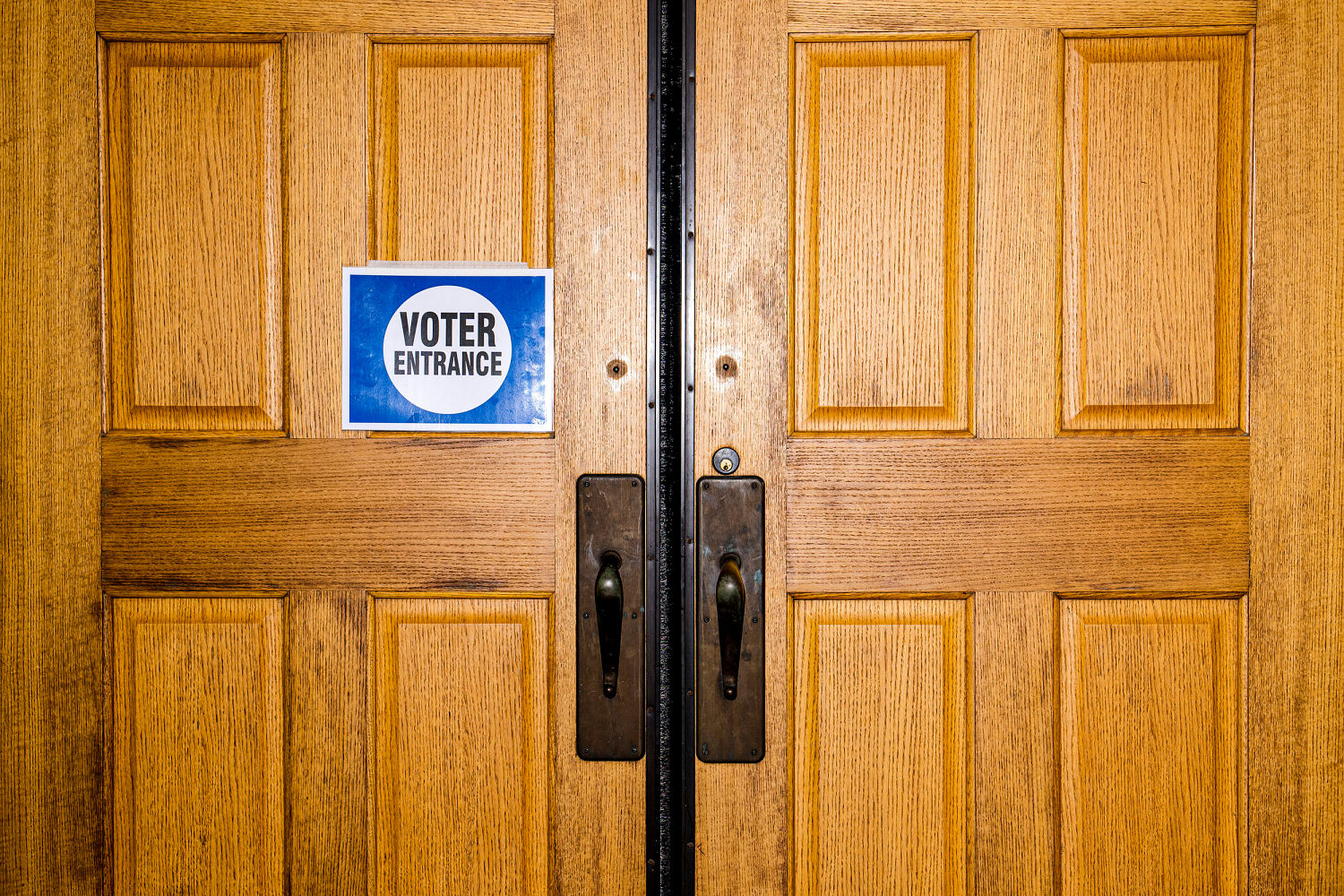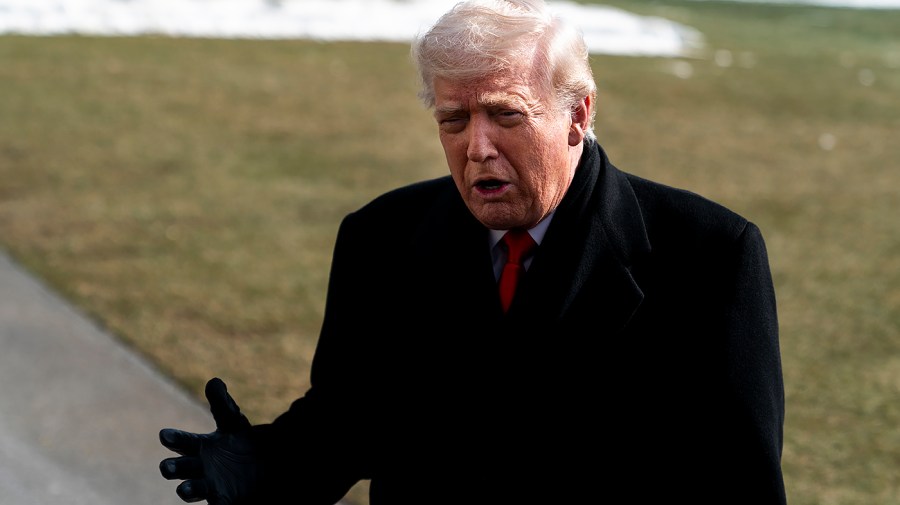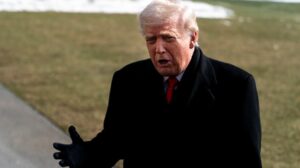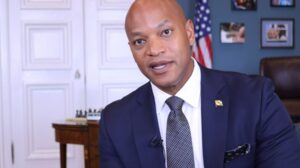Politics
Why 40 million eligible voters are restricted from many polling places

In November 2012, when I was a student at the University of North Carolina at Chapel Hill, I cast my ballot at one of the dining halls. As someone who grew up in California, I was excited to feel that my vote “mattered” in a swing state. The building had an elevator and could be entered relatively easily if someone had a cane or required a wheelchair.
A year and a half later, in my final weeks at UNC, my polling place during the 2014 primary had changed to the local Hillel, just off campus. As I approached the building, the first thing I noticed was that it had two steps to get in, which made me think of how it might be harder for my physically disabled classmates to vote, to say nothing of my disabled Jewish classmates who wanted to freely practice their faith and meet similar people.
Just because a polling place has an accessibility symbol does not mean it is fully accessible for people with disabilities.
I thought about those moments earlier this month as early voting began in swing states like Georgia and North Carolina. The difference in those structures tells a story about how religious institutions are exempt from the same rules that require other private businesses and government buildings to accommodate people with disabilities. And it might compromise those people’s ability to cast their ballot.
A major reason for the discrepancy comes from the Rehabilitation Act of 1974 and the Americans with Disabilities Act. Section 504 of the ADA stipulates that any employers and organizations that receive financial assistance from the federal government cannot discriminate against people with disabilities. Most famously, in 1977, disability rights activists led by Judith Heumann, who died last year, occupied a federal building to force the federal government to implement that section.
But the ADA explicitly exempts religious institutions from Title III, which bans discrimination against people with disabilities in places of public accommodation, such as businesses open to the public. Religious organizations like the Southern Baptist Convention and the Catholic League actually lobbied for protection when the law was being written. William Bentley Ball, who was called God’s litigator, specifically warned that religious freedom “will be directly involved if churches and religious schools are not expressly exempted from the terms of the ADA.”
A new report from Rutgers University found that over 40 million eligible voters are disabled. Many of them may have to adjust their plans to avoid polling places that are difficult to access. According to Christianity Today, about 20% of polling places are in churches. And the raw number of religious institutions that serve as polling places masks the actual challenges given that religious institutions might be the only polling place in a county.
“Once you start to disaggregate the numbers and disaggregate the data, you see a different picture, where in particular states, it can be up to 50% — so half of all polling places — are located in churches or religious institutions,” Jasmine Harris, a professor of law at the University of Pennsylvania, told me.
This is not to say that nonreligious institutions are perfect. Far from it.
Take the battleground states of Georgia and North Carolina. On the first day of early voting in Georgia, more than 300,000 people cast their ballots. In North Carolina, more than 1 million people cast their ballots. People turning out in droves to vote is a moment for celebration in the United States. But obstacles remain to that turnout: In North Carolina, 25% of polling places are in churches. In Georgia, the share is 32%.
Harris also noted that just because a polling place has an accessibility symbol does not mean it is fully accessible for people with disabilities.
“That only gets you so far. That only would tell you whether the outside structure has any barriers, any architectural barriers,” she said. But that does not say what the training is like for poll workers or if the technology is accessible for people who are blind or low-vision.
“We have a really messy system that’s really problematic and has the guise of accessibility,” she said. And while it may not be an issue for a church to be a polling place in a city with many other options, in a place like Davidson Township, Pennsylvania, with only 549 residents, the sole polling location is a church, meaning that voters with disabilities may have few alternatives. In the 2020 election, according to Christianity Today, every polling place in Rincon, Georgia, population 11,000, was a church.
This is not to say that nonreligious institutions are perfect. Far from it. Thirty-four years after the ADA was enacted, many places of public accommodation and even government buildings remain wholly inaccessible. But to have a specific carveout for religious entities creates just one more barrier for people with disabilities. And ironically, it locks them out of using their voice to change circumstances to make the world more accessible.
Eric Garcia is the senior Washington correspondent and bureau chief for The Independent. He is the author of “We’re Not Broken: Changing the Autism Conversation.”
Politics
Trump endorses John E. Sununu in New Hampshire Senate race over Scott Brown
President Donald Trump on Sunday endorsed former Sen. John E. Sununu in New Hampshire’s open Senate race, boosting a longtime critic over one of his former ambassadors, Scott Brown.
Trump hailed Sununu, who Republicans see as their best chance to flip the blue Senate seat, as an “America First Patriot” in a Truth Social post Sunday afternoon. And Trump said Sununu will “work tirelessly to advance our America First Agenda.”
“John E. Sununu has my Complete and Total Endorsement — HE WILL NOT LET YOU DOWN. MAKE AMERICA GREAT AGAIN — ELECT JOHN E. SUNUNU,” he posted.
Sununu, a moderate who has opposed Trump across his presidential runs, thanked him in a statement and quickly pivoted to talking about his priorities for New Hampshire.
“I want to thank the President for his support and thank the thousands of Granite Staters who are supporting me,” Sununu said. “This campaign has and always will be about standing up for New Hampshire — every single day.”
Trump’s endorsement further tips the scales in an already pitched GOP primary between Sununu and Brown, who represented Massachusetts in the Senate before moving to New Hampshire and running unsuccessfully for Senate there in 2014. He served as Trump’s ambassador to New Zealand and Samoa in his first term, and has been presenting himself as the more Trump-aligned candidate as he courts the MAGA base.
Brown vowed to fight on. And he took a veiled shot at Sununu, accusing him of not being sufficiently dedicated to the MAGA movement.
“I am running to ensure our America First agenda is led by someone who views this mission not as a career path, but as a continuation of a lifelong commitment to service,” Brown said in a post on X. “Let’s keep working.”
The two are competing to take on Democratic Rep. Chris Pappas for the seat being vacated by retiring Democratic Sen. Jeanne Shaheen. Pappas issued a simple response to Trump’s endorsement of Sununu: “I’m Chris Pappas, and I approve this message,” he wrote on X. His campaign manager, Rachel Pretti, said in a statement that Trump’s endorsement “confirms” that Sununu “will sell out Granite Staters to advance his political career.”
Trump’s support for Sununu once would have seemed unfathomable. The scion of a moderate New Hampshire Republican dynasty, Sununu served as a national co-chair of former Ohio Gov. John Kasich’s 2016 presidential campaign and joined his family in backing former U.N. Ambassador Nikki Haley for president against Trump in the 2024 GOP primary.
Ahead of New Hampshire’s 2024 presidential primary, Sununu penned an op-ed lambasting Trump as a “loser.” (Trump went on to win by 11 points). And he later derided Trump’s 2020 election conspiracies as “completely inappropriate.”
Republicans initially were bullish about flipping an open seat in purple New Hampshire that’s already changed hands between parties twice this century — Sununu defeated Shaheen to win the seat in 2002, then lost it to her in 2008 — and coalesced quickly behind the moderate Republican as their best option against Pappas. Sununu received instant backing from the GOP’s Senate campaign arm upon his launch last October and has wracked up endorsements from the majority of Republican senators. He’s also won support from Republican leaders in New Hampshire — all of which Trump noted in his Truth Social post Sunday.
Trump also initially supported Sununu’s younger brother, former Gov. Chris Sununu, running for the Senate seat. Chris Sununu, also a vocal Trump critic, declined to launch a bid, prompting GOP interest in his brother.
But some in Trump’s Granite State MAGA base quickly rejected his endorsement of Sununu, calling it a “slap in the face to grassroots supporters” long loyal to the president.
“The Sununu family openly mocked, degraded, and worked against the America First movement, the President himself, and the policies that energized New Hampshire voters,” a group of MAGA activists wrote on X. “We will continue and intensify our campaign opposition to the Sununu operation.”
Sununu holds a wide lead over Brown in polling of the GOP primary. The latest, a University of New Hampshire online survey of likely primary voters from mid-January, showed Sununu up 48 percent to 25 percent with 26 percent of likely voters undecided. But Pappas is ahead of both Republicans in hypothetical general-election matchups, leading Sununu by 5 percentage points and Brown by 10 percentage points in the UNH poll. The survey of 967 likely GOP primary voters had a margin of error of +/-3.2 percent.
Pappas also outraised both Republicans, bringing in $2.3 million last quarter and amassing a $3.2 million war chest heading into the year. Sununu hauled in $1.3 million and had $1.1 million in cash on hand in his primary campaign account while Brown raised $347,000 through his main account and had $907,000 in the bank.
Politics
Trump questions if GOP can overcome voters’ ‘psychological’ midterms hurdle

President Trump is warning of a possible Democratic victory in November’s midterm elections, seemingly lowering expectations for Republican wins well ahead of any voters heading to the ballot box. Trump regularly notes that the party in control of the White House historically tends to lose the midterms…
Read More
Politics
Caught between ICE enforcement and fraud allegations, child care industry gasps for air

The child care industry is struggling to convince parents that its facilities are safe. Providers are in a tough spot after months of immigration operations that have included parents taken in by authorities while dropping off or picking up their kids — as well as fraud allegations that have led to harassment at facilities around the country…
Read More
-

 The Dictatorship12 months ago
The Dictatorship12 months agoLuigi Mangione acknowledges public support in first official statement since arrest
-

 Politics12 months ago
Politics12 months agoFormer ‘Squad’ members launching ‘Bowman and Bush’ YouTube show
-

 The Dictatorship5 months ago
The Dictatorship5 months agoMike Johnson sums up the GOP’s arrogant position on military occupation with two words
-

 Politics12 months ago
Politics12 months agoBlue Light News’s Editorial Director Ryan Hutchins speaks at Blue Light News’s 2025 Governors Summit
-

 The Dictatorship12 months ago
The Dictatorship12 months agoPete Hegseth’s tenure at the Pentagon goes from bad to worse
-

 Politics12 months ago
Politics12 months agoFormer Kentucky AG Daniel Cameron launches Senate bid
-
Uncategorized1 year ago
Bob Good to step down as Freedom Caucus chair this week
-

 Politics10 months ago
Politics10 months agoDemocrat challenging Joni Ernst: I want to ‘tear down’ party, ‘build it back up’









